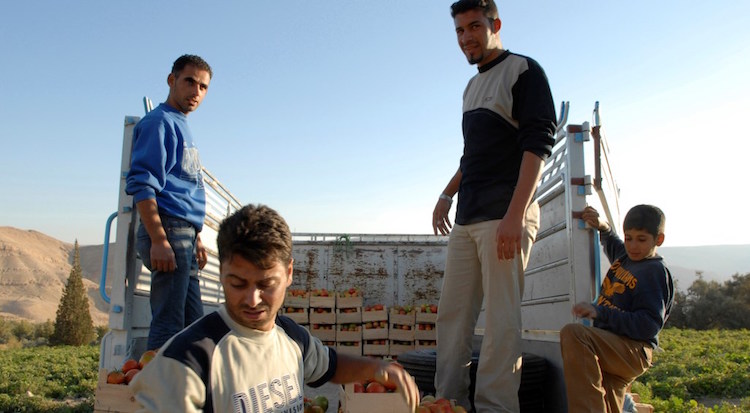By J Nastranis
NEW YORK (IDN) – An unprecedented 65 million people worldwide have been affected by the current global crisis of forced displacement, according to the United Nations High Commissioner for Refugees (UNHCR). More than one-third of the displaced – or 22.2 million – are in the Near East and North Africa (NENA) region.
With this in view, the International Fund for Agricultural Development (IFAD) has announced the establishment of a new financing facility amounting to $110 million to assist refugees, displaced people and their host communities to address the increased pressure put on rural areas by the influx of millions of people.
The facility was launched on September 19 as a Clinton Global Initiative (CGI) Commitment to Action at the CGI 2016 Annual Meeting, which coincides with the United Nations Summit for Refugees and Migrants. Through CGI’s unique model, IFAD will connect and collaborate with global partners ready to take action.
The Facility for Refugees, Migrants, Forced Displacement and Rural Stability (FARMS) has been created in response to the rural dimension of the current crisis resulting from the large movements of refugees and displaced people to rural areas of developing countries, the Fund said in a media release.
“While immediate, often life-saving, humanitarian support is urgently needed in developing countries receiving refugees, the long-term solution is to promote actions that balance the needs of displaced people with those of the host communities, which is why we think FARMS is so important,” said IFAD Vice-President Michel Mordasini.
The initial goal for FARMS is to mobilize US$100 million. IFAD has already received requests for support from Jordan, Lebanon, Sudan and Tunisia for up to $15 million. IFAD is matching these requests with potential donors.
FARMS will focus on the 9.7 million displaced people living in rural areas in the NENA region where communities are struggling to meet their basic needs. In Jordan alone, over 1.4 million Syrian refugees are being hosted, with 90 per cent of them residing in rural areas. In Lebanon, displaced people make up almost 20 per cent of the rural population.
“The rural dimension of the current crisis needs to be recognized. Many displaced people come from rural areas and settle in rural areas of their host countries, putting pressure on already vulnerable communities,” said Mordasini.
FARMS will support people living in rural areas of host countries by helping them to improve sustainable agricultural productivity, which is the basis of their livelihoods. Refugee families will also receive support to develop marketable skills and increase their incomes. Economic opportunities will also be created in countries of origin so that the people who have left have income-generating opportunities to return to, and those who remain have a chance to rebuild their livelihoods.
The new facility aims to create at least 1 million days of temporary work and at least 20,000 jobs; more than 500 community infrastructure projects include roads, irrigations systems and markets; improved management of natural resources; a range of agricultural-related trainings and better access to financial services.
The creation of the new facility responds to UN Secretary-General Ban Ki Moon’s call for “new and innovative forms of financing” to meet the economic and social costs of hosting large numbers of refugees made at the World Humanitarian Summit in May 2016 and reiterated in his recommendations for the UN Summit for Refugees and Migrants.
“We created FARMS because we saw the collateral impact that forced displacement was having on rural host communities and the areas that migrants were leaving behind. It broke my heart to think that decades of development progress in the region could be undone,” said Khalida Bouzar, IFAD Director for the Near East, North Africa and Europe Division.
“Through FARMS, IFAD will help bridge the humanitarian-development gap and ensure that no one is left behind,” he said.
With almost half of IFAD’s ongoing operations in countries with fragile and conflict–affected situations, Bouzar added that IFAD has decades of experience working with displaced persons, host communities and returnees. While the initial focus for FARMS will be in the NENA region, other parts of the world will also be included as needs arise. [IDN-InDepthNews – 19 September 2016]
Photo: IFAD
IDN is flagship agency of the International Press Syndicate.

